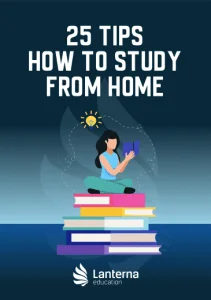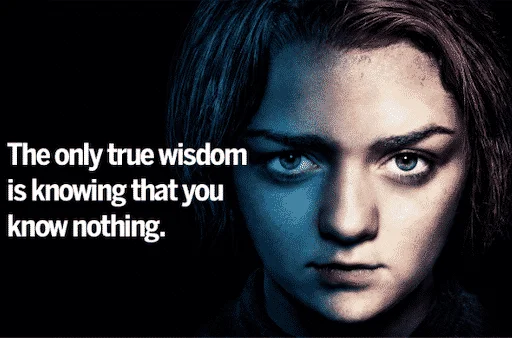Autumn 2020 marks the start of the new Theory of Knowledge syllabus, so if you’re starting the IB this autumn you’ll be the guinea pigs for the newest version of TOK. There are some stark differences between the old TOK, and the revamped version, so reading through this guide is a surefire way to make sure that you know what’s coming! We’ll take you through the ins-and-outs of the whole syllabus to ensure you know how you’ll be tested and what you’ll be taught throughout your time in TOK. Hopefully this will alleviate some of the inevitable TOK confusion!
Course Outline:
Themes
You are required to study the core theme:
- Knowledge and the Knower – allows you to explore what shapes your own perspectives as a knower – where your values come from and how you make sense of and navigate the world around you. On top of thinking about the individual knower, you will be exploring the impact of culture and community on shaping an individual’s beliefs.
Your teacher (or you), will then choose 2 additional themes that you must study, out of this list of 5:
- Knowledge and Technology – looks at the effect of advances in technology on the acquisition of information. It explores both the positive and negative sides of engaging with information online as it leads to unprecedented amounts of global interaction but may facilitate the spread of false information.
- Knowledge and Language – naturally language plays a large role in communicating and sharing knowledge from person to person, but this theme looks even deeper at how language doesn’t just describe experiences but structures/creates those experiences. It is language that shapes what we know, not language that describes what we know.
- Knowledge and Politics – discusses the practice of politics and allows you to engage in debates that we see in news all around the world (the existence of fake news, post-truth politics, etc.). It also looks at our own political views and values and questions where those come from.
- Knowledge and Religion – for many around the world religion is a large determining factor in how we see the world. This theme allows you to think about how religion may impact and infiltrate the way in which we view the world.
- Knowledge and Indigenous Societies – this theme would allow you to take a deep exploration of knowledge that is bound to a particular cultural group or society, focussing on knowledge that is embedded in the traditions of certain indigenous societies.
Having to study from home? Click the guide for the best tips to boost your productivity!
Areas of Knowledge
The areas of knowledge are structures to explain the way in which knowledge is organised. The IB outlines 5 Areas of Knowledge that you must study:
- History – involves exploration and looking into the past and how it may affect our perception of new knowledge being acquired.
- Human Sciences – looks at disciplines like psychology, economics, geography, and others. You may focus on if there are fundamental differences between human sciences and natural sciences in the validity of knowledge being produced in each of the disciplines
- Natural Sciences – looks at biology, physics, and chemistry and how we differentiate ‘scientific’ knowledge from ‘pseudo-scientific’ knowledge. You may also look at scientific discoveries and developments and how they may serve as a paradigm shift.
- Arts – includes disciplines like dance, music, visual arts, theatre, and film. You may discuss the function of the arts, limitations in what should be considered ‘acceptable’ within the arts, or the relationship between art and culture.
- Mathematics – is seen as the area of knowledge with a strong degree of certainty, but is the knowledge that we get from mathematics more accurate or correct than knowledge within, say, the arts? You may also look at if creativity, imagination, or beauty have a role to play within mathematics.
So what’s the difference here between the old and new syllabus? Well, we’ve got fewer areas of knowledge, more defined themes, and a bigger focus on ethics. Previously ethics was an optional theme that many teachers chose to ignore due to its notorious difficulty to teach or write about, but now ethics is mandatory and is baked into all 5 of the areas of knowledge for the TOK 2020 syllabus.
The Assessment Methods:
The Exhibition
Past students had a presentation and an essay as their assessment methods. Whilst the latter remains, the IB has replaced the presentation. The aim of the exhibition is to show how the content above exists in the world around us! This will be through creating an exhibition of three objects (or images of objects) and connecting them to one of the 35 “IA prompts”.
These include:
“What constraints are there on the pursuit of knowledge?”
“What is the relationship between personal experience and knowledge?”
“Are some types of knowledge more useful than others?”
“What makes a good explanation?”
“Are some types of knowledge less open to interpretation than others?”
“What role does imagination play in producing knowledge about the world?”
You can find a full list of the prompts on the IBO website as well as more about the syllabus changes!
Our advice is to start by thinking about which theme you’re going to root your exhibition in. The questions are clearly quite broad so it’s important to narrow your focus from the get-go. Make sure you recognise that the context of your objects is important – a picture of a woman from google is very different to a picture of your own Mum! Remember: this is an individual project and group work is not permitted so make sure you choose a topic that most interests you!
Whilst the 1600 word essay will be marked by IB examiners and will be worth 2/3rds of your TOK grade, the 950 word exhibition is marked by your teachers and then externally moderated (or checked) by the IB.
The Essay
The TOK essay operates in much the same way as previous years. The IBO prescribes a set of six titles that all students must choose one of. Using the knowledge you have acquired across the TOK course, you have to write an essay focusing on specific knowledge questions to be explored via various areas of knowledge and real-world examples. We have a number of blog posts that breakdown titles from previous years. It would be worth your while to see what kind of analysis is needed to reach the top marks in this assignment!
So there we have it, an overview of what you can expect in TOK 2020! Still confused? Luckily, we’ve got elite IB tutors ready to guide you through any of the content or assignments over your IB journey!
Find out more about who our tutors are!




